Each Wednesday evening, a group of congregants from First Baptist Church of Mt. Olive, located about 65 miles southeast of Raleigh, North Carolina, gathers for a Bible study called “Tackling Tough Topics Together.” The 10 to 20 regulars have discussed race, human sexuality and mental illness.
Those kinds of conversations are rare and becoming rarer at churches like First Baptist, which is affiliated with the Cooperative Baptist Fellowship, a network of congregations that offers a moderate alternative to the Southern Baptist Convention.
CBF-affiliating churches generally allow for women’s ordination and view the Bible as authoritative but not literal. They are distinguished these days by the diversity of their congregations, mostly white, but tending to be split nearly equally between Republican-leaning and Democratic-leaning voters.
They are, as the CBF of North Carolina likes to call themselves, neither red nor blue churches, but “purple.”
In an era of increasing polarization, when a deeply acrimonious partisan divide has permeated nearly all aspects of American life, including church, that’s a tough spot to be in.
Your tax-deductible gift helps our journalists report the truth and hold Christian leaders and organizations accountable. Give a gift of $30 or more to The Roys Report this month, and you will receive a copy of “Hurt and Healed by the Church” by Ryan George. To donate, click here.
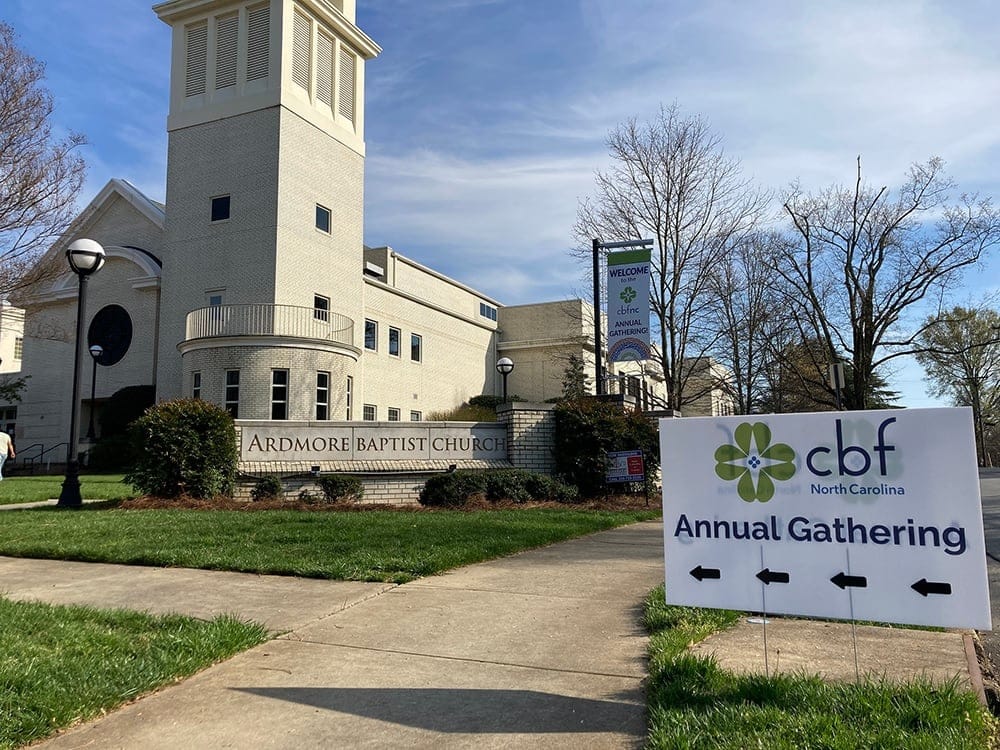
A recent survey of 467 local pastors by two University of North Carolina political scientists found that of seven Christian groups surveyed in the state, Cooperative Baptist churches were the most evenly politically divided, ahead of Methodists, while, at the other end, Pentecostals and Southern Baptists were least divided.
That makes political discussions in the country’s 1,800 or so CBF-affiliating churches particularly fraught, because pastors risk alienating half the church’s members.
“It’s constraining the kind of debates on moral issues that pastors in purple churches feel comfortable addressing,” said Liesbet Hooghe, a professor at the University of North Carolina at Chapel Hill, who authored the study along with Gary Marks and Stephanie N. Shady.
For First Baptist’s pastor, Dennis Atwood who attended the leadership forum for CBF pastors in Winston-Salem last week, the effort to reach members about the moral issues of the day is worth the effort.
“We’re pushed into dualistic thinking where we have to have either/or,” he said. “My approach is to model a big tent approach. We can have unity without uniformity.”

Historian Kristin Kobes Du Mez, whose bestselling book “Jesus and John Wayne” traces the rise of militant masculinity in evangelical churches, spoke at the retreat about the difficulty of leading an evangelical congregation in polarizing times.
“Most white evangelicals were not marching with neo-Nazis in Charlottesville, nor were most evangelicals storming the Capitol on Jan. 6,” Du Mez told some 200 church leaders at the leadership forum, sponsored by CBF of North Carolina, on March 23. “But it’s also true that underlying affinities make it difficult for mainstream moderate evangelicals to unequivocally condemn these acts.”
The coronavirus pandemic exacerbated polarization as masking and meeting in person became flashpoints among members. Several CBF pastors said they lost members who either thought the church was too cautious to reopen or not cautious enough.
Many CBF pastors at the leadership forum said they struggle with preaching about political issues. Some said their solution is to stick as closely as possible to the biblical texts and rely on the lectionary, or appointed Scripture readings, to guide what they say on Sunday mornings — only speaking to political or cultural issues if there’s a direct analogy in the text.
That strategy has helped Lee Canipe, pastor of Providence Baptist Church in Charlotte, which affiliates with the CBF. Church members can criticize his interpretation of a Scripture passage, but, he said, will not offer opinion.
“People tend to be much more open to hearing something uncomfortable when it’s coming from the Bible,” Canipe said.
Last week’s forum offered these often-besieged pastors workshops with titles such as “Self Care in an Anxious Age,” and “Effective Leadership in a Time of Polarization.”
At one workshop, writer, theologian and former pastor F. Timothy Moore challenged pastors to think of the Bible as a text that lends itself to numerous interpretations. He pointed out that the Bible has multiple accounts of key stories, including the creation story, the Ten Commandments and Jesus’ birth.
Most pastors conflate the different versions of these stories or try to smooth out the contradictions.
“In a polarized world, what would happen if we considered teaching the Bible as a conversation or a dialogue with multiple ideas?” Moore asked a group of pastors.
Balancing those interpretations and mustering the courage to speak out on moral issues of the day is no easy task. Yet, as Du Mez told the church leaders at the conference, the stakes are high.
“The state of democracy and possibly our communal good may come down to the folks in the middle,” she said. “If you feel like you’re up against a lot, you are.”
 Yonat Shimron is a national reporter and senior editor for Religion News Service.
Yonat Shimron is a national reporter and senior editor for Religion News Service.




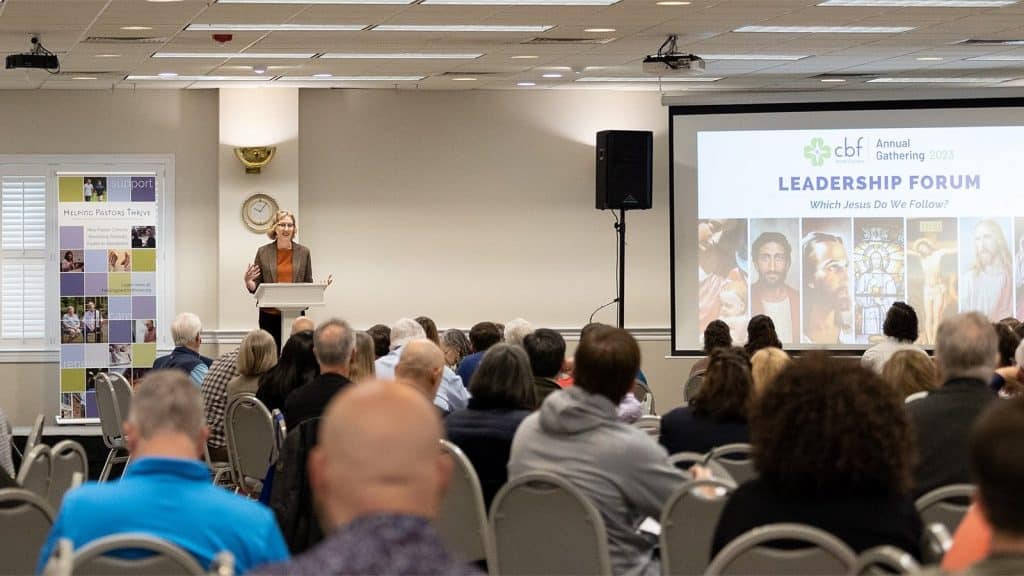

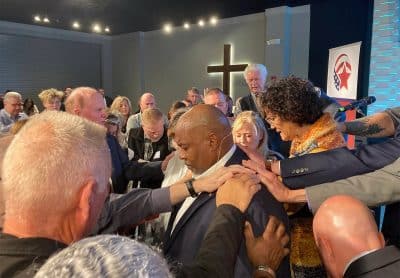


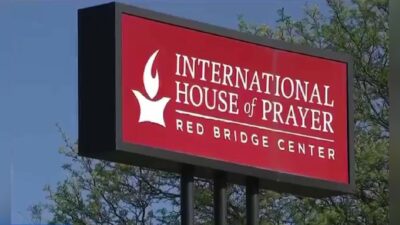


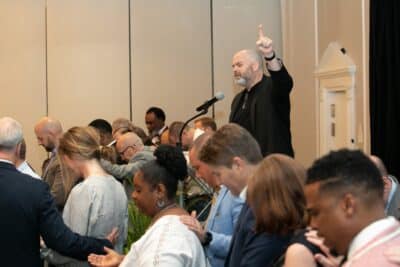






11 Responses
CBF churches do the Kingdom of God a great service by being “purple”. There is a strong temptation to preach politics, especially in a culture infused with Christian Nationalism. No one can complain about a pastor who will “stick as close as possible to the biblical texts”.
Parenthetically, the description of CBF churches as not taking the Bible literally is not quite accurate. Every CBF pastor I’ve ever heard takes many portions of the scriptures literally. The distinction between churches that take the Bible literally or not is a false one. No one takes the full Bible literally—nor should they.
PS. paragraph 6 is missing a word.
I am not particularly familiar with many of the CBF churches. However, I do know of two in NC which had ministry staff members who were married to individuals of the same sex. Whatever “great service” the CBF churches may do, it certainly isn’t setting an example of faithfulness to the scriptures.
LORD JESUS and Satan came to a field full of people. Each asked the people to follow. One man remained. A short time later, Satan returned and asked again. The man said, “l haven’t decided.” To which Satan replied, “oh, but you already have.” There is no purple with LORD JESUS.
Amen! 2Timothy 3:5 “I know your works: you are neither cold nor hot. Would that you were either cold or hot! So, because you are lukewarm, and neither hot nor cold, I will spit you out of my mouth.”
Are you sure about that verse from 2 Timothy 3:5? My KJV says the text is “Having a form of godliness, but denying the power thereof: from such turn away.”
The part about “I know thy works, that thou art neither cold nor hot: I would thou wert cold or hot.” comes from Jesus’ message to the church in Laodicea and lives in Revelation 3:15.
“But it’s also true that underlying affinities make it difficult for mainstream moderate evangelicals to unequivocally condemn these acts.”
This is a quote from the historian who is invited to speak at the church‘s conference. The two events she is speaking of could not be any more directly unrelated. She’s asking for a blanket condemnation for neo Naziism which is an almost universally held opinion-no one I know, has any affinity or approval of that particular distorted view of reality. At the same time, she asks us to condemn people who were seeking freedom and who held beliefs that the system in place to secure their freedoms have been breached by corruption. This, to me us on the polar opposite end of the two thought processes. You’re not a Christian nationalist if you want to live in freedom snd enjoy a quiet and peaceful life as we are enjoined to do by the Scriptures. In fact, that is what is made our country so attractive to so many. It is that exact opportunity to live in freedom without government interference that most mirrors the culture that humankind seeks to live under, a culture that I Timothy and other scriptures affirm as a desirable way of life. Which is why people are desperate, even at this depraved point in our culture, to seek to live in this country.
The only conclusion I can draw from this statement above is that the author of that statement wants us to consider those two viewpoints or reactions to be equal. I’m sorry, but they aren’t even close to being in the same universe.
Thank you for making a good point.
And I feel sure that Historian Kristin Kobes Du Mez would feel right at home in the churches that are mentioned in this article. The college at which she teaches is far more liberal than its sponsoring denomination. And that denomination has taken a significant leftward turn in recent years. There is plenty of evidence (both written and verbal) that Dr. Du Mez would fit nicely in the CBF world of theological compromise and moral confusion.
Agreed. I know she’s been all the rage for the last few years, but I’m not impressed with Du Mez.
It’s a strange time when a preference for biblical literalism equates to DJT being a truth teller.
We would have a better idea of Professor Du Mez’s perspective if the article had cited the complete title of her most famous book: “Jesus and John Wayne: How White Evangelicals Corrupted a Faith and Fractured a Nation”, which the publisher says is “a sweeping, revisionist history of the last seventy-five years of white evangelicalism, revealing how evangelicals have worked to replace the Jesus of the Gospels with an idol of rugged masculinity and Christian nationalism—or in the words of one modern chaplain, with “a spiritual badass.” https://wwnorton.com/books/9781631495731